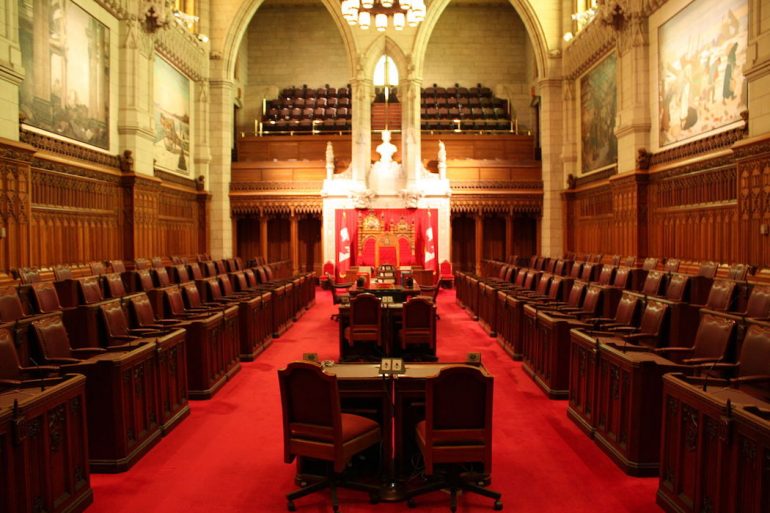The Canada Emergency Wage Subsidy (CEWS) has passed in the Canadian Senate. The legislation, passed Saturday evening, is aimed to help eligible businesses avoid laying off employees during the COVID-19 pandemic. The bill still requires Royal Assent.
Parliament was recalled for a rare Saturday sitting (the second in the past two weeks) in order to pass the subsidy, also known as Bill C-14, in an emergency vote.
“This program will provide families with assurances that paychecks are coming in.”
– Finance Minister Bill Morneau
This time around, the Liberals delayed recalling Parliament until it could secure opposition approval of the wage subsidy bill to avoid a repeat of the last emergency session. A draft version of the legislation was shared with opposition parties this week in an attempt to negotiate and quickly pass the 75 percent wage subsidy. The House of Commons passed Bill C-14 fairly quickly on Saturday, with the Senate following shortly after.
Little has changed from the draft version of the bill shared this week, when the criteria for the CEWS was “relaxed” in an attempt to make it easier for “fast-growing companies” to access the program.
Specifically, the government reduced the 30 percent year-over-year revenue decline to 15 percent for the month of March and specified that companies will also have the option to compare their revenue decline to January and February 2020 rather than a year-over-year monthly decline. The previous version required the revenue decline to be year-over-year from the same month in 2019.
The opposition, as well as tech leaders, criticized the revenue requirement when it was announced, saying the subsidy was not inclusive to tech startups and pre-revenue companies as many of these businesses often do not use revenue as a growth metric.
As MPs meet today to consider the wage subsidy, I urge both govt and opposition to work together quickly to make important amendments (such as scrapping the 30% rule for small firms) & get the legislation passed. Any delays will mean more layoffs as SMEs run out of $.
— Dan Kelly (@CFIB) April 11, 2020
On Saturday, the opposition and government agreed to change one CEWS requirement so that if an employer is eligible based on one month’s revenue, they automatically qualify for the subsequent period.
The CEWS is meant to encourage companies to rehire employees by granting a 75 percent wage subsidy over the next three months to businesses that have missed out on revenue due to the crisis.
The subsidy will cover 75 percent on the first $58,700 in wages, which would mean payments of up to $847 a week per employee for up to 12 weeks. The government is encouraging businesses themselves to top up the remaining 25 percent of wages.
“We are called upon to support those in need and I know we won’t let them down,” said Prime Minister Justin Trudeau, who attended the House on Saturday. The prime minister added that this wage subsidy is the largest government support program since World War II.
Finance Minister Bill Morneau said Saturday he hopes the funding will be rolled out in two to five weeks. The CEWS will cost the federal government $73 billion, which is revised from its original cost of $71 billion.
“We want to ensure that employers can keep their employees on the payroll or rehire employees,” Morneau said at a Saturday briefing. “In this time of deep uncertainty, this program will provide families with assurances that paychecks are coming in.”
The draft legislation is independent of the Canada Emergency Response Benefit (CERB), passed March 25, which provides $2,000 a month for up to four months for workers who lose their income as a result of the pandemic.
During the Saturday Parliamentary session, the government also committed to implementing measures to address gaps in the CERB to include students, part-time workers, and essential workers. The exact measures were not specified.
Finally, during the session, it was also discussed that the government plans to introduce short-term support measures for small- and medium-sized businesses, which would be partially non-refundable, a move aimed to maintain jobs and reduce debt related to fixed costs. BetaKit will provide details on what these measures might be connected to as more information becomes available.
Developing…
Image source Wikimedia Commons


